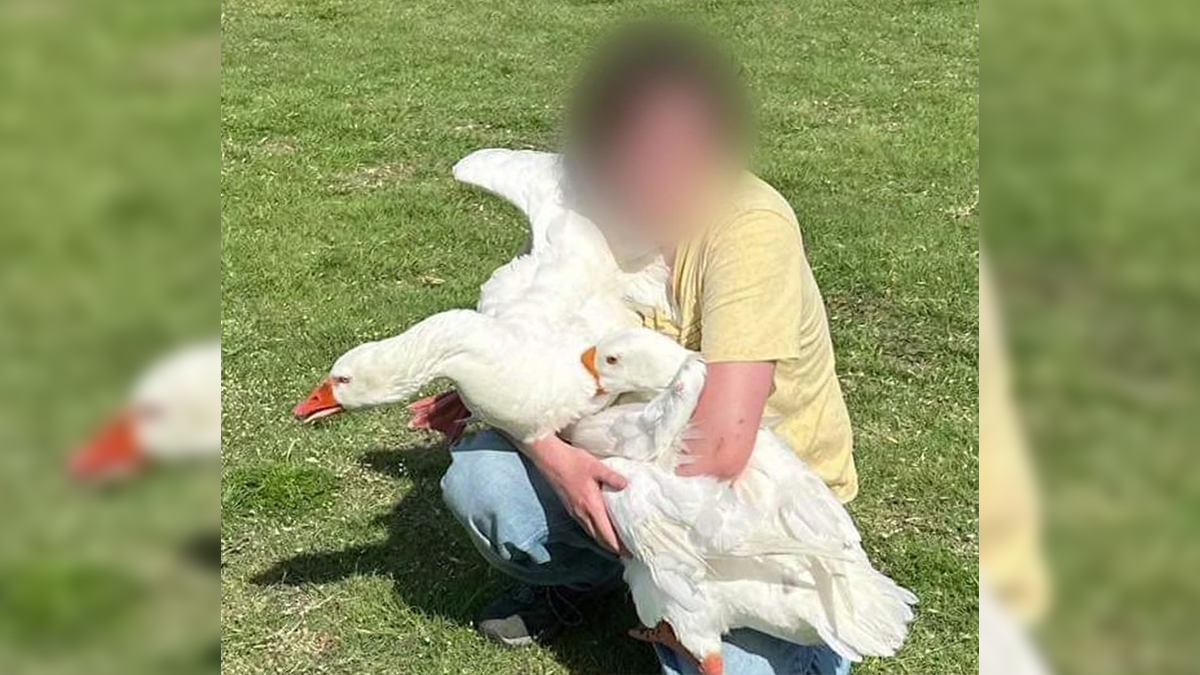A new campaign to combat human trafficking began Friday in North Richland Hills and 70 Texas cities.
The new “Can You See Me” campaign uses hundreds of billboards donated by outdoor advertising companies.
Authorities say several recent prostitution cases demonstrate the North Texas problem of people being sold for sex against their will or underage.
At the billboard launch in North Richland Hills, former human trafficking victim Sophia Strother Lewis stood before other advocates against human trafficking and spoke about her experience as a child sold for sex
Get DFW local news, weather forecasts and entertainment stories to your inbox. Sign up for NBC DFW newsletters.
“Her mother then looks at her and decides consciously I want to use her to supply my drugs and pay my bills,” she said. “Her new name, her new identity, her new purpose in life over the next four years was solely to be somebody else’s currency.”
The anti-slavery group A21 is a cosponsor of the billboard campaign.
“’Can You See Me’ is designed to provide an easy action step where if you see something to actually report it,” A21 Chief Executive Officer Nick Caine said. “We often figure that it’s being exclusively overseas or in the developing world and we don’t often figure that it’s something that’s right here.”
Local
The latest news from around North Texas.
Authorities say the freeway vehicle next to you or the people beside you at the neighborhood store could be human trafficking perpetrators or victims.
“I didn’t grow up in the 'hood. None of that was my experience. I had two very well-to-do parents that unfortunately succumbed to drug addiction,” Lewis said. “They made some very bad decisions while they were on drugs and that resulted in me being trafficked and being sexually assaulted on numerous occasions.”
Evidence of demand in North Texas came with news of 46 men at hotels in Frisco and Southlake caught by officers who posed as commercial sex workers.
Police said short-term rental homes in Dallas and Plano were used in a human trafficking case that involved 23 male customers.
Authorities say women who may in fact be victims in such cases are typically offered social services.
At the North Richland Hills event, a representative of Governor Greg Abbott said there are an estimated 313,000 victims of labor or sex human trafficking in Texas.
State Senator Tan Parker, a Flower Mound Republican, said lawmakers have been working to curb the problem, reduce demand and strengthen penalties for human trafficking.
“It’s an incredible comfort to see so many come together to stop this scourge, this darkness that we have amongst us in society,” Parker said. “We have so much more to do. I’m a proud Texan, as we all are. But at the end of the day, it is unacceptable that Texas is the worst state in the country in dealing with this crime. It has to end.”
The officials said a similar billboard campaign in 2019 and 2020 produced encouraging increases in arrests and victims rescued. This effort is intended to improve on that.
Sophia Strother Lewis said she wound as a new mother herself at age 15 and escaped human trafficking in 1995 with a desperate call to her grandmother.
“The better side of the story is I made it out. And that’s what the ‘Can You See Me’ campaign hopefully can afford people in. You can get out. There are people that don’t know you that actually care. When you do get out there’s support and services that help you,” she said.



